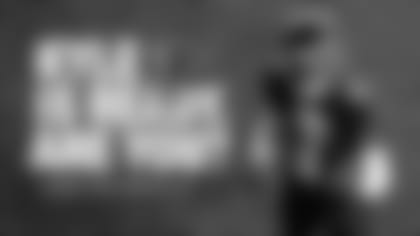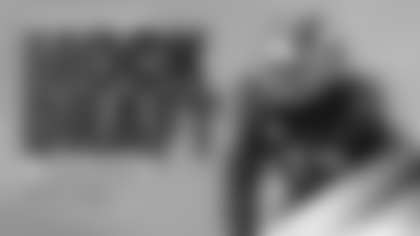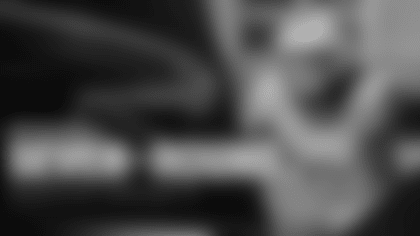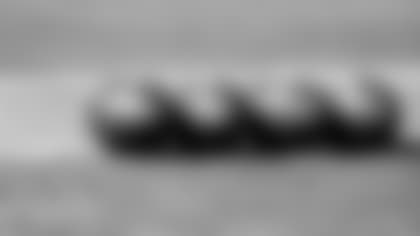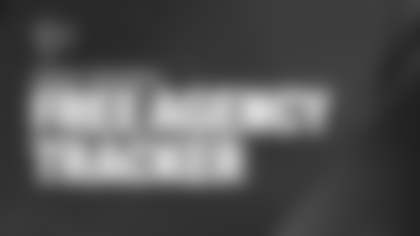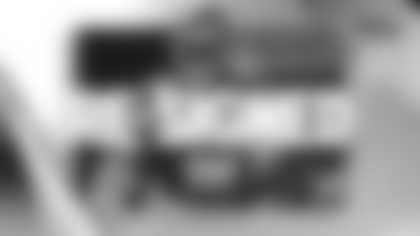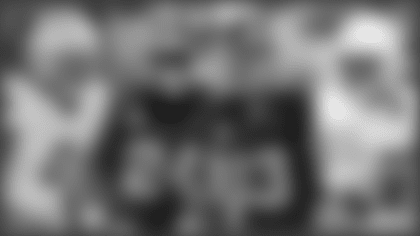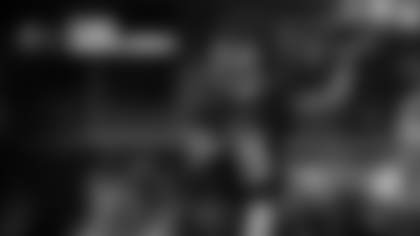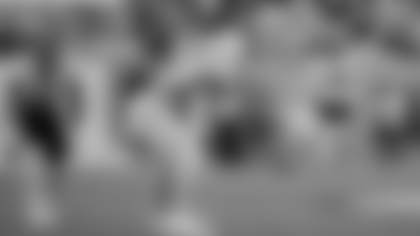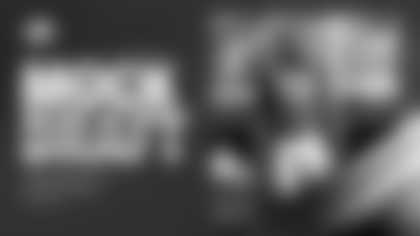MIAMI GARDENS, Fla. – From Miami's first offensive red zone snap to the last, the Falcons' defense established a strength that is really only visible during moments in camp where the chains are loosened a bit. Though the chains never really come off until Week 1 of the regular season, for a lot of these players (especially the veterans who won't play much – if at all – in the preseason), joint practices are their only time to show out in the trenches. The Falcons' defensive front did so when the teams split up for some red zone work.
David Onyemata got the period started with a would-be sack of Tua Tagovailoa. On the next play, Grady Jarrett joined Onyemata in the backfield, though it wasn't obvious whether or not that play was ruled dead before Tagovailoa got the ball out at the last second. Either way, pressure was applied constantly by this defensive front that saw a wealth of depth rotate in.
Rookie pass rusher Bralen Trice did not practice due to an illness, which allowed for a couple more reps for Demone Harris, who did well setting the edge when given the chance. Even the third-team front made a strong impression, as defensive tackle Prince Emili and linebacker Milo Eifler blew up a run play, shutting down a hole that Miami was not able to break through.
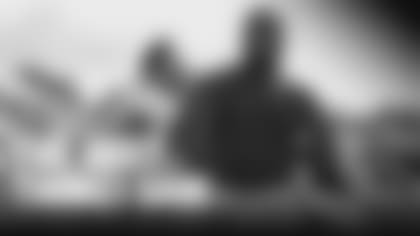
Asked about that specific period of play after practice ended, defensive lineman Brandon Dorlus said this particular period was one where the vibes ran high. The impact plays spread contagiously across the front seven after Onyemata got in the backfield right off the bat.
"When you start the red zone period with a sack," Dorlus said, "it's always a good thing, especially up front."
Dorlus joked that in practices like these a sack can't tell the whole story because – obviously – there's no tackling. Therefore, sacks are more subjective than concrete. However, even in saying that, one can still notice how a defense moves a quarterback off his spot or collapses the pocket around him. In this red zone period, it felt like both things, particularly the latter, happened more often than not.
"I think that's the biggest thing for us, getting to the quarterback," Dorlus said. "It helps the guys on the back end not have to be in coverage for so long because there's not a lot of space back there. So, the biggest thing is getting home."
And doing so consistently would take this defense to the next level, quickly.



